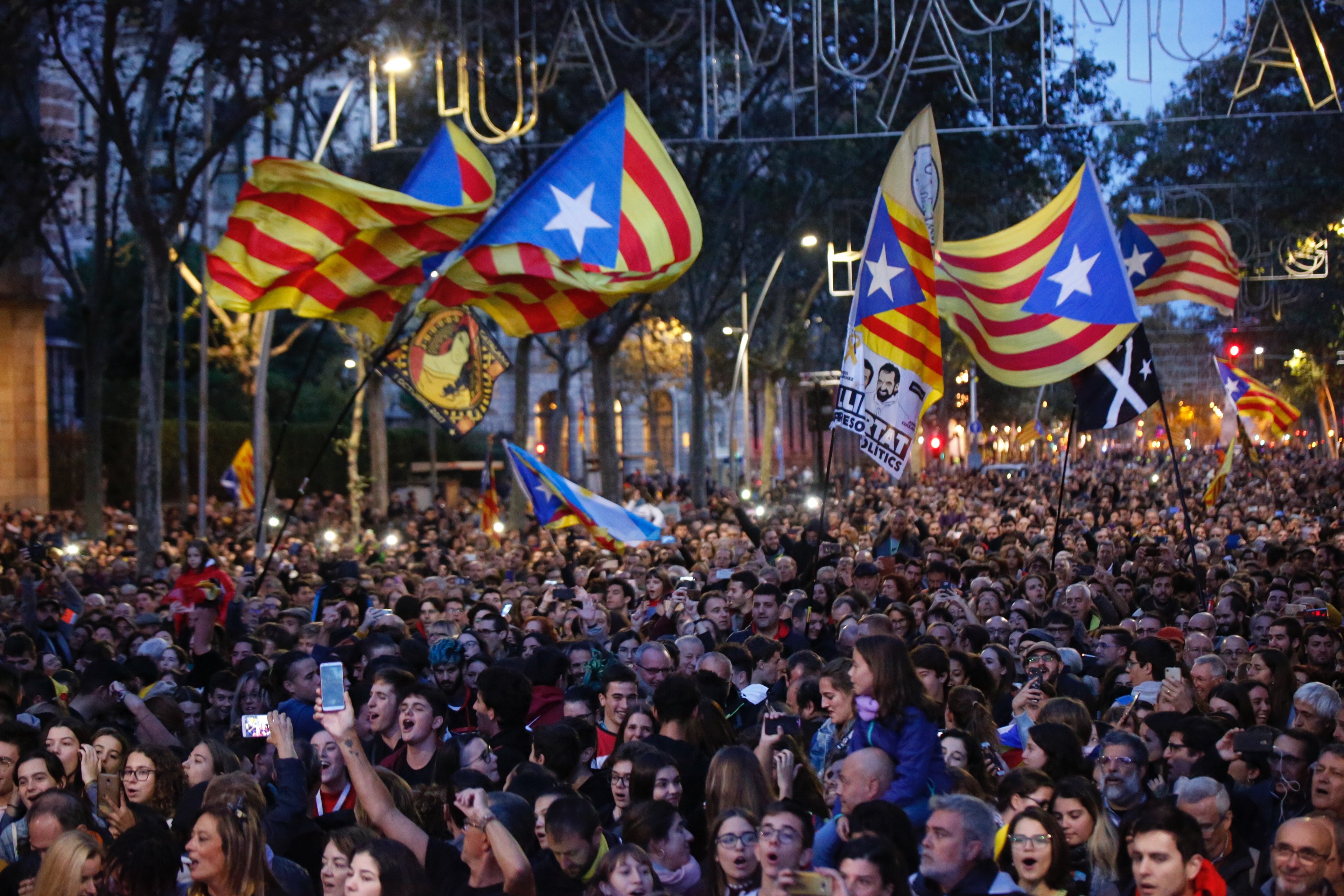Ten elections and a jump from one to 23 deputies of the 48 Catalonia elected on Sunday. That's the growth of the Catalan pro-independence representation in the Spanish Congress. In 1993, of all the parties in Catalonia, ERC was the only one that was pro-independence and stood in the Spanish general election. It was only a year earlier they had declared themselves "explicitly pro-independence" and they got little support, 186,784 votes (5.10%), but it did get them back the seat they had lost in 1984, returning them to the chamber.
ERC held stable in the next two general elections in 1996 and 2000: one deputy and fewer than 200,000 voters. It wasn't until 2004 that its results turned sharply upwards, with Josep-Lluís Carod-Rovira as its candidate, just after a controversy over a secret meeting he held with ETA leaders in Perpignan. That year, they got 638,902 votes and 8 seats.
But one swallow doesn't a summer make: in the 2008 election, their support halved to 291,532 votes, giving them 3 seats. That result in seats was repeated in 2011, despite losing a few votes.
Then in 2015 came the true "boom" of the independence movement. ERC, led by Gabriel Rufián, shot up to nine seats, the most it had ever got up to that point, with 601,782 votes. But, what's more, Convergència joined the pro-independence bloc, standing for the first time without Unió under the brand Democràcia i Llibertat ("Democracy and Freedom"). They got 567,253 votes and 8 deputies, giving the pro-independence side a never-before-seen 17 representatives.
Things changed little with the rerun election in 2016 which followed the failure of any candidate for prime minister to gain the necessary support in the Congress to take office. ERC gained 30,000 votes; Convergència lost 80,000.
The imprisonment of pro-independence leaders and the repression of the movement translated into another burst of growth in April this year. ERC passed the million vote mark and went from 9 to 15 seats. Junts per Catalunya improved on Convergència's votes (500,787), but got one fewer seats. The candidacy Front Republicà got 113,807 votes, but that didn't prove enough to get any deputies.
Finally, this latest election on Sunday saw the pro-independence vote consolidated with 1,642,063 ballots (42.77%) and 23 deputies, one more than in April. Although ERC lost votes and seats, it remains the most popular party of any ideology in Catalonia. The novelty this time has been the entry of CUP into the Congress, standing in an election to Madrid for the first time, taking 244,754 votes and two seats. For their part, Junts per Catalunya got back the seat it had lost in April.

